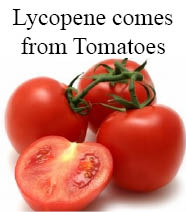
In addition to its cancer-fighting property, Lycopene also has the following benefits:
1. It promotes intercellular communication through increasing amounts of connexin 43 (Cx43), a type of protein that’s responsible for smooth chemical and electrical transmissions between cells. When cells call out to each other about the presence of cancerous cells in a certain area, the body immediately responds by sending out antibodies that prevent the affected cells from growing and spreading their affliction to other organs or nearby tissue.
Of course, one’s diet must not only comprise of tomato products and supplements that contain serum lycopene, but other antioxidants, too, namely vitamins C and E as well as vitamin A from alpha and beta carotenoids. Because of the Cx43 protein, cells absorb more of these compounds and promote faster bioavailability of prescriptive and chemotherapeutic medication.

3. Cells recover more quickly from the damaging effects of oxidative stress. Essential proteins in your body are oxidized more quickly when your system is being attacked by an illness or by toxic compounds, such as free radicals. Increasing the amount of lycopene in your system is said to slow down and reduce the destruction of healthy tissues.
However, there’s no standard range of the required daily intake of Lycopene because of the variability of amounts available in food sources and in health supplements. In addition, the type of lycopene found in food may differ in quality and effectiveness than dietary supplements. Generally, food guides recommend that people consume at least 400 grams of fruits and vegetables each day. It’s also been suggested that people should absorb 5 to 10 milligrams of lycopene every day from tomato sauce, tomato juice concentrate, ketchup, fresh tomatoes, and nutritional supplements.

Leave a Reply